Of the more than 4 million acres that comprise the Hawaiian Islands, just a small number of corporations, people, and governments own most of the land. The Great Māhele was the Hawaiian land redistribution proposed by King Kamehameha III, to which virtually all of Hawaii can be traced. Read further for more about that.
This topic came up recently when your editors went on the Mountain Tubing Adventure on Kauai and realized we were on land owned by Grove Farm. Then a week later we took a helicopter tour that landed at the Jurassic Park Falls, which is on Robinson- owned land. Also at the Saturday Puhi Farmers Market, it occurred to us we were also on Grove Farm land, which is also the land on which most if no all of those farmers grow their produce. In other words, you could be standing on private land without realizing it.
The largest landowner in Hawaii is the state of Hawaii, with 1.6 million acres.
On every island, the state owns vast amounts of property. That includes more than 1m acres on the Big Island, and 121k acres on Niihau. That includes nearly 200k acres associated with The Dept. of Hawaiian Homelands, which was created by Prince Kuhio, to provide homesteading opportunities for Native Hawaiians.
The 2nd largest landowner is the U.S. Government with 531k acres.
When the U.S. overthrew the Hawaiian monarchy in 1893, both the state of Hawaii and the federal government divided much of the land. Nearly one-third million acres are for national parks in Hawaii and for the military. That includes 400k acres of Volcanoes National Park on the BI, 30k acres for Maui’s Haleakala Ntional Park, and more than 60k acres for Oahu’s military locations.
The 3rd largest landowner is Kamehameha Schools with 362k acres.
On the Big Island, the Kamehameha Schools own 300k acres on Hawaii Island, while on Oahu it has 50k acres. It emanated from Bernice Pauahi Bishop’s gift to the land for educational purposes for Hawaiians. While about 1000 acres are used for school campuses, most of the rest remains undeveloped for either agricultural or conservation purposes. Additional land is commercial, which includes two Oahu Malls, the Royal Hawaiian Shopping Center and Hotel, and the Kakaako neighborhood, among others.
Parker Ranch. 106k acres.
The Big Island’s Parker Ranch represents six generations starting in the late 1700s, when cattle were first introduced. The ranch once had more than 500k acres.
Robinson Family. 101k acres.
Robinson’s property consists of more than 55k acres on Kauai and 46k acres on neighboring Niihau. On Niihau (the “forbidden isle”), that represents a vast majority of all property.
Larry Ellison/Pulama Lanai. 89k acres.
Back in 2012, you may recall that Oracle’s Larry Ellison acquired nearly 90k acres of of the island. He created Pulama Lanai “to manage, preserve and protect the precious land and natural resources.” What was once home to Dole’s largest pineapple plantation in the world, has become a resort destination resort. The island is home to about 3k residents.
Also read Billionaires Bezos, Zuckerberg, Oprah and Ellison Pony Up Big In Hawaii.
Alexander & Baldwin. 87k acres.
A&B, as it is known here, has 21k acres on Kauai and 65k acres on Maui. The two original owners started acquiring acreage in the 1840’s, when they were just in their 20s and 30s. They later acquired the Hawaiian Commercial & Sugar Company, and a railroad on Maui, the Kahului Railroad, among other things.
Molokai Ranch. 54k acres.
The ranch is located primary on the west side of Molokai, and comprises nearly 1/3 of the island’s acreage. Once owned by Kamehameha V, it later was passed down to Bernice Pauahi Bishop, from whom it was later purchased. After that, Cooke bought it for agricultural purposes that included leases to familiar brands Del Monte and Libby, among others. The land was sold to a Singaporian company in the 1980’s, who have been trying to sell it for many years. The current asking price is $260m, and there are major issues.
Local county governments. 38k acres.
Of these, the largest is Honolulu, wherein the city/county government owns 18k acres. The Big Island county owns 10k acres, the County of Maui owns 9k acres on Maui, Molokai and Lanai, and the County of Kauai owns just under 1k acres.
Steve Case/Grove Farm. 31k acres.
Grove Farm on Kauai is associated with the Wilcox family, which owned it for more than a century. The property was previously Crown Lands that were expanded to include irrigation systems, cattle ranching, and of course sugar cane.
AOL founder Steve Case purchased the land in 2000. It’s still active in farming, and many Kauai farmers market farmers grow on Grove Farm land. There are also industrial, commercial and residential developments, as well as tourism enterprises.
Kauai’s landowners.
The state of Hawaii is number one, and Robinson and Grove Farm are the second and third largest land owners.
Maui’s landowners.
The state has 154k acres, while Alexander & Baldwin comes second with 65k acres, and the federal government follows with 33k acres.
Oahu’s landowners.
After the state of Hawaii’s 94k acres, the federal government comes in second with 61k acres, and Kamehameha is next with 47k acres.
Big Island’s landowners.
Again, the state of Hawaii comes first with 1.1m acres. The federal government is second with 432k acres, and Kamehameha Schools is third with 297k acres.
The Great Mahele.
When missionaries and other entrepreneurs followed Captain Cook here in the late 1700s, they brought with them foreign ways which included private property ownership.
Starting in 1845, the awarding of land began which resulted in the Great Mahele, or land division, which occurred in 1848. The Great Mahele is considered the biggest change to take place to land title in Hawaii. It abolished the prior system and created private land ownership.
Later, when the Hawaiian Monarchy was overthrown, Crown Lands were confiscated and became part of the government’s ownership. The Crown Lands consisted of approximately one million acres, about a fourth of Hawaii, that King Kamehameha III retained in the Great Mahele.
To this day, title to all of the land in the Hawaiian Islands is said to be traceable to land divisions associated with the Great Mahele.
Get Breaking Hawaii Travel News
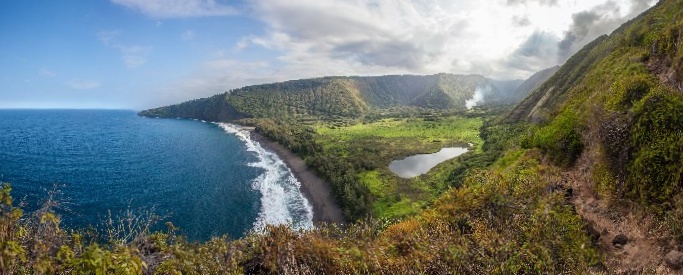
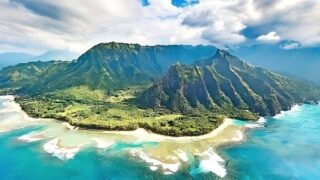
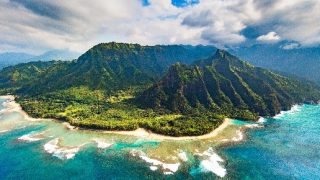
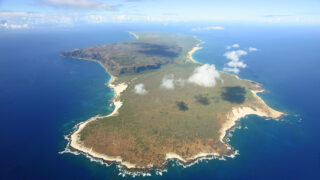
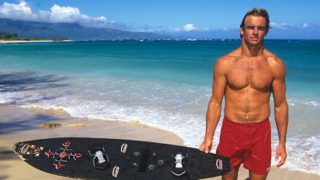
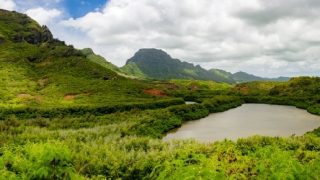
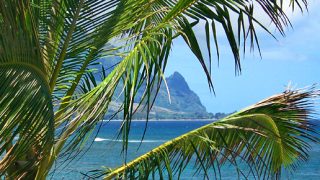
Really enjoyed this article on who owns land on the various HI Islands. Great history lesson as well. I love learning about the history of places we visit. We recently visited the 4 major islands in late March 28-April 16. We celebrated our 30th Wedding Anniversary. We had a wonderful time! We will be back!
* one typo to mention in the last paragraph, second sentence: “…said go be traceable…” should be “…said to be traceable…”
Hi Patti.
Thanks on all accounts. Typo is fixed.
Aloha.
Give Hawaii back to the native Hawaians.
I think the So called Federal Government needs to Surender all the crown land back to the Hawaiian Community, And it should give each hawaiian person one half acre of property to develop them selves and if they are not able to than they would have to return it back
The state needs to stop selling land for profit. Additionally the state owes a lot of money to Hawaiian Home Lands,.
I lived in Pearl City on Oahu when I was in the Navy working at Pearl Harbor. Now I’m older, and want to come back to live in Hawaii. I would like to go to the Big Island. Do you know where there’s affordable housing for low income seniors?
Puna area is the best option in that regard.
America 🇺🇸 didn’t over throw the Hawaiian island but in fact as it is today Rich are the ones stealing the lands of Hawaii case and point Mark Zuckerberg, Oprah Winfrey, Barak Obama, The Hawaii State Government.
I wouldn’t call it stealing when those people legally bought the land. Land they could not buy if someone did not sell it to them. Perhaps the finger is being pointed in the wrong direction, hmmm.
The “Law” has always been written to protect the interests of wealthy white men. There is no legal basis for the annexation of Hawaii by the US Government because it had no standing in a sovereign nation. But it is unlikely to be overturned simply because too much money would be lost.
The history of New Mexico land grants is a great example. These were deeded in perpetuity to inhabitants by the treaty off Guadeloupe Hidalgo. The mountains contained vast forests which were held in common by the land grants. A member would be sued for a debt , the land divided up and sold off to timber companies. After it’s use, they donated it to the National Forest. All of it completely legal. Except for the initial division of assests of untitled land.
Read the Great Mahele and the Bayonet Constitution if you want to delve into the history of the 13 businessmen including the sugar barons who already had the Hawaiian lands for themselves before the they overthrew the Kingdom of Hawai’i.
It is long overdue that the lands of the great Mahele be returned to the Hawaiian people. The government of Hawaii needs to fund genealogists to work to create, validate and distribute genealogical resources so descendants can claim their rightful resource of stolen lands.
The US did not overthrow the monarchy in 1893. It was local private landowners trying to prevent overreach by the monarchy. They established a republic of Hawaii. US annexation happened in 1898 at the request of the republic.
Exactly! The United States of America did not overthrow the Kingdom of Hawaii. In fact, President Grover Cleveland condemned the takeover and demanded Hawaii to be returned to the monarchy.
Was the land returned? Of course not and it won’t be. If the federal and state do return the land over then they should continue to turn the land in the Mainland over too. How about that? I’m sure the native Indians and the Mexican government would accept it. But stop that talk. Imagination won’t get it done nor should it be given back.
Committee of Safety organized by Sanford B. Dole with the tacit support of the US and the helped of the US military overthrow the Kingdom. Minister John Stevens recognized Dole’s new government on his own authority and proclaimed Hawai’i a US protectorate.
Very interesting article, thanks. My family are planning to visit Hawaii next February. We’d like to stay in one spot and soak up the culture, as well as enjoying the sun and sand. None of us have ever visited Hawaii before. We have 6 medium-fit adults and 5 elementary school-aged children. Which island(s) would you recommend for first timers? Thanks again!
Hi Anne.
There’s just no simple recommendation about which island. We’d suggest you check out guidebooks including the Hawaii Revealed series. You may also be able to check out the online version free from your library. Then see what resonates with all of you. It is hard to go wrong, in our opinion, with a great time to be had for first time visitors on every island.
Aloha.
I was expecting a more contemporary who owns Hawai’i version. A more informed article would have gone beyond government & Kamehameha land ownership to include the recent acquisitions of non-resident individuals buying up parcels of adjacent lands.
As per Kaua’i, Steve Case owns 40K+ acres on Kaua’i. He is no synonymous with Grove Farm. He bought Grove Farm (2000) and then Amfac (2001). Mark Zuckerberg (Meta—previously Facebook founder) now owns 1,500+ acres of Kauai’s North Shore (2021).
On Maui, Oprah Winfrey purchased the Thompson Ranch to add to her 100 acre ranch in Kula (2021).
What’s clear is the very same practice of foreign land ownership continues today as began 129 years ago when the Hawaiian nation was illegally overthrown.
What a shame! America overthrows Hawaii, brings sickness, STD’s, and death AND streals the land of the Kanaka Maoli! Leave it to America to have their hands in every cookie jar… especially when it doesn’t belong to them and the people of the land get robbed. Just my opinion….
Though Americans can be blamed for a great many of the ills that have befallen the islands, std’s are not one of them they arrived in 1778 with Capt. Cook’s infected crew. Cook prohibited relations with the native population but several of his crew were stranded on Niihau by weather and the clap was out of the bag. So when he returned a year later he could sadly see the evidence of it everywhere.
Hi Rob and Jeff. That was a great article. I actually have wondered about this for a long time. Amazing how a “tourist adventure” can educate a person. Look forward to hearing more stories like this. Mahalo.
Hi Debra.
Thanks for being part of this and your many comments! We appreciate it.
Aloha.
The U.S. Gov has done some egregious land grabs over the years. I have Japanese-American friends in CA who were interned @ Manzanar & Heart Mountain, etc., during WWII. Their farms & land were seized unless they had Caucasian friends who held the property for them. A few years ago anyone still living was awarded $20K reparations with nothing for descendants. This barely covered their losses.
What happened to the Americans of Japanese descent was horrifying, however this comparison is altogether inaccurate.
Imagine the U.S. military going into a peaceful sovereign island nation and violently overthrowing an unarmed government out of interest for its land and potential economic gains, then stealing its lands, holding its people hostage by not allowing them to practice their customs, their religion, their songs and their dances, forcing upon them their own religion, and forbidding them even to speak their own language.
The Japanese received an apology & reparation however inadequate. The Hawaiian people have received nothing. The majority cannot afford to buy a tiny piece of their own land. Many can’t afford to live in Hawaii.
It is completely comparable to the way it subjugated all Native American on the mainland. Some were treated slightly better , like Taos Pueblo , where they were granted their ancestral homelands, many were treated worse , like the Lakota Sioux, who have been killed in mistaken identity massacres and had their most sacred mountains defiled by the Federal Government’s graffiti of dead presidents faces.
Propaganda is propaganda no matter where or when it is used…such is the case of Hawaii and understanding the u.s. annexation and occupation of a independent country that had treaties with the u.s. and other countries. Seek factual information. Tyler Sonnermaker, Business Insider article November 2021, “The Last Monarchy”, about zuck land on Kauai, gives a good account of why and how Hawaiian lands and Nation are now in foreign hands.
I support Ukraine, I support Hawaii!
I think you meant to say, On January 17, in the year 1893, the Kingdom of Hawaiʻi was illegally overthrown.
With state and federal government owning $2M acres we have a solution to housing shortage and high cost. Time for the citizens to step in and demand freeing up of land in the interest of the citizens ( actually the owners of the land).
Amazing, very insightful article! Mahalo.
Aloha, you got the biggies and there’s another tier just below. For Kauai I’d add the Rice family owners of the Kipu Kai ranch. And there’s Zuckerberg. And then there’s basically from Poipu Beach Park all the way up to Koloa landing, all If I remember correctly leasehold land. Smack in the middle is the Kiahuna Plantation a leasehold property with the old timey Moir, Knudsen and Baldwin families owning the land, you can determine this by linking from real estate listings to County Tax records. And on Maui Oprah owns a chunk of Kula up above Wailea with an easement through the cane fields connecting the two so she gets to escape Tsunamis.
Mahalo
How big is Kauai (how many acres of land is it)? Thank you
Hi John.
It is 562 square miles which converts to 360k acres.
Aloha.
Aloha Rob and Jeff,
When looking at property for sale in Hawaii, we’ve come across properties that were leasehold rather than fee simple. We’ve always assumed it’s the State of Hawaii that owns the land. We also wonder if there is a possibility that we could purchase the land when the lease expires or if we would have to give up our home. Do you guys have any information about this? Thanks for your blog. You guys are a wealth of knowledge. Mahalo.
Hi Pam.
See if this helps. https://www.royalhawaiianmovers.com/leaseholdvsfeesimple/
Thanks and Aloha.
Thanks BOH. Very interesting.
I think A&B’s Maui holdings are overstated as in 2018 they sold ~42K acres to Mahi Pono (huge chunk of old sugar cane land in the center of the island). Great article just wanted to point that out.
Hi Andrew.
Thanks. We appreciate you pointing out that discrepancy on Maui. On Kauai, not long ago they sold 1k acres which doesn’t appear to be reflected.
Aloha.
If it’s the state of Hawaii land, they likely stole it from the Kanaka Maoli. From what I understand, leasehold land is good for the time of the lease and then I think the owner has the choice to give you another lease or decides not too. But I don’t know for sure! Know that there are more Hawaiians forced to leave Hawaii than Hawaiians who can afford to buy land and stay. The land price has been driven so high by people abroad, that there is lots of hard feelings.
Your statement that the US overthrew the Hawaiian monarchy is revisionist history that over simplifies the events of that time to fulfill a currently political correct narrative. In other words it is not accurate.
Thank you, but that statement would seem to justify references to some authoritative sources…
So what’s your version? I’m interested to know.
It would be useful if you could back up that statement with facts rather than just expecting anyone to believe it without any.
Aloha Steve,
As a Kānaka Wāhine, then President Clinton signs Public Law 103-150, the “Apology Resolution” to Native Hawaiians, on November 23, 1993. He signed the legislation apologizing for the U.S. role in the 1893 overthrow of the Hawaiian monarchy. The apology, meant as a means of reconciliation with Native Hawaiians, acknowledges the historic significance of the event
S.J.Res.19 – A joint resolution to acknowledge the 100th anniversary of the January 17, 1893 overthrow of the Kingdom of Hawaii, and to offer an apology to Native Hawaiians on behalf of the United States for the overthrow of the Kingdom of Hawai’i.
congress.gov/bill/103rd-congress/senate-joint-resolution/19
There are other points of view. The Apology Resolution was a calculated political act to try to push the agenda of those supporting the Akaka Bill whose goal was to give Native Hawaiians tribal like status. The Akaka Bill was largely supported by groups interested in opening Native American style casinos in Hawaii.
Also there is this info: hawaiireporter.com/u-s-apology-resolutions-20th-anniversary-repeal-it-dont-celebrate-it/
hawaiireporter.com/u-s-apology-resolutions-20th-anniversary-repeal-it-dont-celebrate-it/
Steve, we weren’t talking about Akaka Bill. Read my other responses regarding the truth about the overthrow of the Kingdom.
The U.S. government’s own admission, the accepted account of Hawaii s journey to statehood reveals the unlawful violation of a trust between nations and the forced cultural domination of Hawaiians.
However, that the result of the influx of immigrants has been the alienation of Native Hawaiians who have become outsiders in their own land, losing economic and political power to the more affluent immigrant inhabitants.
The Apology Resolution of 1993 acknowledged that the long range economic and social changes in Hawai’i during the 19th and early 20th centuries have been devastating to the population, health, and well being of the Hawaiian people. The question of how to remedy the situation, however, remains a difficult one to answer.
The history of Hawaiian annexation and the subsequent cultural domination of the island’s people have resulted in a painful search for identity and self realization for many in the Native Hawaiian community. By many accounts, the colonization deprived Native Hawaiians of their fundamental human right to identify as an independent indigenous group through cultural practices.
The reason of the overthrow of the Hawaiian Kingdom:
The Kingdom of Hawaii was overthrown on Jan. 17, 1893, after a group of 13 Caucasian businessmen and lawyers staged a coup d’état against Queen Liliuokalani and her government.
Their ultimate goal was annexation to the United States. It would be five years, however, until that goal was achieved.
The plan to overtake Hawaii’s monarchy had been brewing for decades. It flared up during the reign of Queen Liliuokalani, Kalakaua’s sister who succeeded him as monarch on Jan. 29, 1891, after the king’s death…..
… In early 1892, a secret group the Annexation Club was formed by Lorrin A. Thurston, a leading politician, lawyer, businessman and native-born citizen of the Kingdom. The club’s goal was to be ready to act if the queen carried out their worst fear proposing a lenient constitution to replace the restrictive one forced on Kalakaua in 1887. That document, the Bayonet Constitution, had been authored by Thurston and it had severely limited the monarch’s power.
This link will give you more detailed information and events of what happened:
ksbe.edu/article/the-truth-behind-the-illegal-overthrow-of-the-hawaiian-kingdom/
Right. Queen Liliʻuokalani handed the keys of the Kingdom over to the Gang of 13 then locked herself in the Palace.
Seriously, please tell the complicated politically incorrect version so I can edit my Hawaiian history books. And please cite your sources because it appears the international historians I’ve read got it wrong.
To deny facts is to remain ignorant.